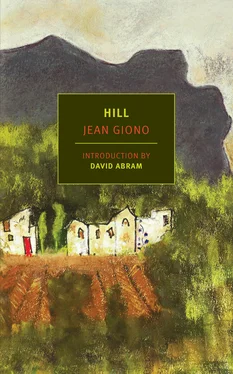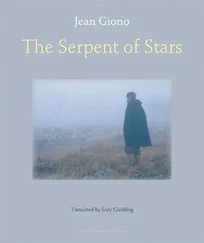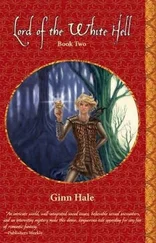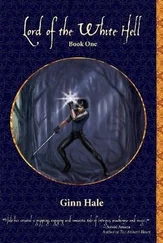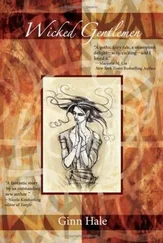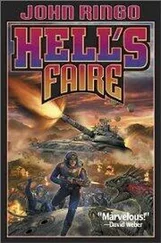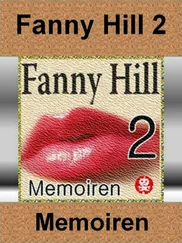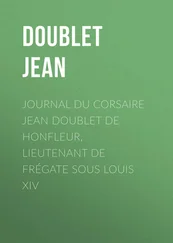•
The cat reappears. From the windowsill it jumps onto the fig tree. The fig tree takes it up to the roof. It walks across the tiles. It heads toward Maurras’s house. Fear has abruptly reunited Maurras with the rest of them. He’s touched Jaume’s arm.
“What do you say I bring it down?” And at once he’s slipped the bandolier off his shoulder.
“No, leave it alone. Anything but that.”
Maurras has obeyed.
•
From now on they’re bound together, right to the bitter end. One by one the grains of wheat will sift through the matted stems, down to earth and the ants. Magpies will devour the grapes and the figs, and the coulter blade will rust in the autumn rains.
Now they’re nothing more than one big, fearful body.
•
The cat has come back two or three times. It always comes out from under the mulberry bush. It walks on the tips of its claws, paws rigid, head held high. It passes by without seeing the men.
And then, another time, it shows up writhing, and its whiskers test the air, and its tapered ears seek out sound within the silence.
Or yet again, when you’re securely locked inside your house, you suddenly see it appear on a windowsill.
This is what happened to Madelon Maurras. She’d gone to get some potatoes from the loft. She was picking them out from the pile and putting them into her apron. She wasn’t moving too fast. When you’re as old as she is…
You know what it’s like, an attic? It’s full of things that are as good as dead — old, broken-down armoires, worn-out shoes, blouses that have seen better days. All in all, things you’ve left there to die a quiet death. When you see them again, it’s as though they’re reproaching you. It’s always a little sad.
On top of that, on this particular day the weather was gloomy.
•
She heard some plaster crack. She lifted her head: The cat was curled up in the frame of the skylight. It was licking its paws and cleaning one of its ears.
Ma Maurras dropped her potatoes and, quick as her old legs would carry her, she ran, lickety-split, downstairs to the kitchen. She swallowed a big draught of water to calm herself down.
•
Gagou’s the only one who doesn’t look scared. When the cat goes by, he laughs and bares his horsey teeth. Lips drooping, he lifts his wrinkled nose toward the creature. Sweetly he says to it “Ga gou, ga gou,” sweetly and tenderly, with so much attention and tenderness that the strands of silken saliva ripple under his chin.
At the same time, something’s bothering him, too. But what?
As soon as it’s dark he comes out to prowl between the barricaded houses. For the first time, he alters his usual call. A muted whimpering leaks out of his mouth, like the moans of a lost dog.
He watches the windows of the bedrooms, where the shadows of women in their nightgowns, their hair loosened, pass by.
The lamps go out.
Gagou waits, motionless, in the dark.
•
This evening, just after nightfall, before people’s eyes were used to the dark, Marie went into convulsions.
This happened all at once. Her mother heard her grinding her teeth. She touched her, and she could feel she was cold, rocked by big waves that made her bones creak.
Babette lets out a howl. Arbaud gropes in the shadows, looking for the lamp. At last he has it. But the glass globe rolls across the tablecloth and stops just short of the edge. He looks for his matches. No matches. Yes — here they are, at last. He strikes them so hard they don’t light but merely score the darkness with a blue streak.
You can hear Marie’s bones cracking. Babette moans, “Her head, Aphrodis, oh my, my, her head.”
Finally, the lamp.
The little one is in her mother’s arms. Within the space of a moment, between the last glimpse of daylight and the lighting of the lamps, both of them have become unrecognizable. Babette is nothing but two round, crazed eyes and a blackened mouth, like the mouth of a spring, ceaselessly moaning. Marie… Is this really Marie she holds in her arms? Or is it a gigantic heather root, full of knots, twisting and turning tortuously in a blaze? Two tiny, stiff hands claw at the shadows.
You can’t hear anything but Arbaud’s heavy breathing and the song-like modulations of the smoking lamp, as Babette fiercely kisses the heather root with her mouth wide open.
•
They’ve laid the girl down on her parents’ double bed.
“Pull her legs apart, gently.”
“Rub her with vinegar.”
“Where is it — that vinegar?”
“There, on the mantelpiece.”
“No it isn’t.”
“Yes.”
“No.”
“Yes.”
“Ah, right, I’ve got it.”
They fuss around the bed, run into each other, pull apart, hang on, stretch their hands out toward Marie, and moan.
They undress her. Papa tries to unbutton her little nightgown. The tiny, mother-of-pearl button slips out of his fingers, resists, pops back, dances, plays; then, in one swoop, he rips the gown open from top to bottom.
Her poor little body is exposed. And then it’s like a storm breaks inside Babette:
Her Marie!
Pink like a rose she was, and plump, and now look what she’s become!
Has she turned into this motionless thing you poke at, thrown down on her parents’ bedspread?
The lamp sings.
They rub her sad, yellow flesh with lavender- and hyssop-scented vinegar. Her body relaxes. Her head rolls around on a softened neck. Her mouth opens, and you can see her teeth unclenching. One after another her delicate fingers stretch out, spread apart, and bend back to their usual position of a hand at rest. Now it’s their Marie again, their flesh and blood, their two faces blended, their daughter restored.
“Lay her in her own bed,” says Arbaud, “and put a warm stone at her feet. It’s over.”
He straightens his stocky frame. He takes two steps, and his broad hand moves toward the lamp. He adjusts the wick. The lamp quiets down.
•
“And what if it isn’t true,” Jaume thinks, all of a sudden. He’s tried to accustom himself to Janet’s view of the world, and the more he thinks about it, the more he has his doubts.
“What if it’s just a lie to trick me, to take me in even further?”
He listens to the languid life of the trees around him, but it seems more hostile than friendly.
There’s grass growing in the little square — tufts of yellow grass, same as on the hill. Their square’s on its way to becoming part of the untamed hill again, the way it was before. The road to the flatlands is almost completely blocked by a huge, broken-down clematis. In a less unsettled time they would have quickly cleared the road. The world of trees and grasses is slyly attacking the Bastides.
“Tenderness! He said ‘Tenderness.’ Like it’s that easy.”
But if you don’t go at it with your spade, if you don’t go at it with your axe, if you don’t clear a space around you, if you let the blade fall away from your hands just one time, then the whole mass of green surges over your feet and right up over your walls. It turns everything back into dust. Jaume raises his head. In front of him, on the other side of the square, a shadow slides into the shade of the oak: a wild boar! A wild boar out in broad daylight in the Bastides!
The beast barely conceals itself underneath the foliage. It’s headed for the fountain. It sniffs the empty basin. It scratches at the ground with its hoof.
Jaume’s rifle is right there against the wall. All he needs to do is reach out his hand. Jaume doesn’t reach out his hand. This is something new and disturbing.
The wild boar has seen the man. Calmly, it chooses its resting spot and sprawls out in the dust. The rifle stays against the wall. Jaume, with his forehead thrust forward, his hands clasped between his knees, looks straight ahead as if he weren’t seeing a thing. And the last thing he’s thinking about is the gun. He’s afraid. Fear has pierced him like a splinter, and his whole body hurts around it. He’s afraid. That’s why he hasn’t stretched his hands out toward his gun. He’s no longer thinking about his power as a human, he’s thinking that he’s afraid, and he’s shrinking back inside his fear, like a nut into its shell.
Читать дальше
